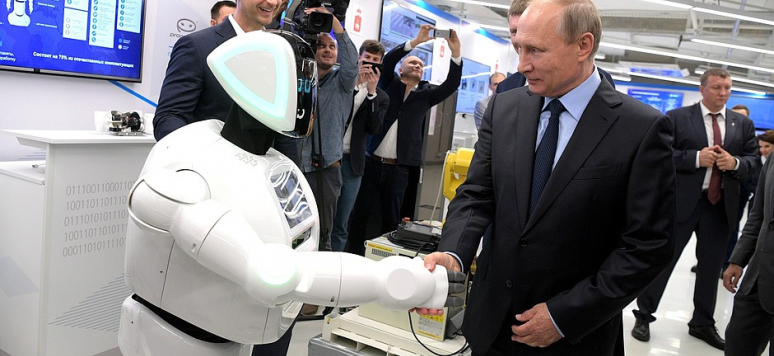Russie.Eurasie.Reports - The Outsider: Russia in the Race for Artificial Intelligence Russie.Nei.Reports, No. 34, Ifri, December 2020

When analyzing the global state of play around artificial intelligence (AI), Russia so far looks like an “outsider” compared to the two technological leaders, the United States and China.
Yet, like the European Union, Russia exhibits two apparently contradictory but fundamental trends: it is trying to reap the benefits of technological interdependence—digital, scientific, financial etc.—while also protecting its internal market and thereby achieving the “technological sovereignty” it so ardently desires. Russia’s state-led approach is compounded by the same problems that afflict Russia in the conventional digital sector: lack of investment, weak integration into international scientific and normative networks, political pressure on private companies, dependence on global technological value chains and brain drain. Might these factors lead us to underestimate Moscow’s potential in AI? This paper argues that although these weaknesses are significant, continue to hold Russia back and threaten to amplify pre-existing asymmetries of power with the United States and China, Moscow intends to preserve niches of expertise that it can deploy in foreign policy and domestic governance. The Russian authorities have also handed big parts of AI development to the armed forces and the defense industry, as part of modernization plans and for asymmetric use.
Julien Nocetti is an associate fellow at the French Institute of International Relations (Ifri) and a lecturer at Saint-Cyr Coëtquidan Military Academy. He is also a member of the GEODE research center (Géopolitique de la Datasphère—University of Paris VIII), and heads the Cyber Risk Governance chair at Rennes School of Business.
